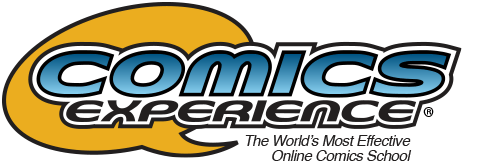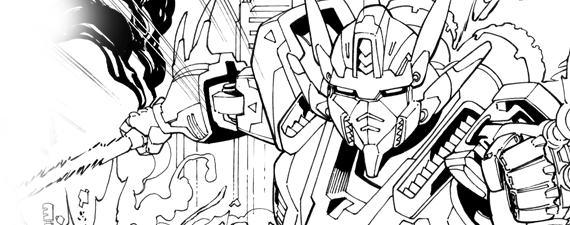With 2018 only weeks away, we’d like to start sharing a little more about our introductory courses aimed at aspiring comics creators.
This week, we’re speaking to Comics Experience founder and CEO Andy Schmidt, who teaches Introduction to Writing. Enrollment is now open for the class beginning on January 31!
Please explain your teaching philosophy for the introduction to comics writing class.
It’s two things: The first is I’ve created the kind of course I wish had existed when I was trying to learn comics writing and how to break into the industry. The course has evolved over time as the industry and the creators have shifted priorities and goals, but I stay true to the core philosophy—making sure it’s a course that I would want to take.
The second, and the one that applies directly to the content of the course is that I take a step-by-step approach to storytelling. We start at the beginning and hone in on your story as you work through a short story for the class, layering each step of the way. I’ve created a repeatable methodology that a student can do over and over for any comics story.
The true hope is to give people the tools they’ll need to execute a truly compelling comic book story. And we cover all of the fundamentals in the introduction course.
What are some overlooked nuances of comic book writing that your class will cover?
How to communicate with both an artist and your audience at the same time in your script. In some ways, you’re really writing two scripts at the same time. The one your artist—your partner in storytelling—reads and works with you on the final product and the other is for your audience, ratcheting up tension, revealing character, and so on. That’s different from almost any other kind of writing.
A lot of people really have trouble writing for static images. I spend a whole night on how to write for your artist to set the artist up for success and to set your page up for visual dynamics. That’s a huge part of effective comics writing, and it’s something that’s very hard to get anywhere else.
What does your writing process look like? What lessons and takeaways from your process would you like to heavily emphasize to students?
I use a process that I’ve come to call layering. I approach one aspect of the comic at at time—really focus on it and how to make it effective. Then I move onto the next stage, and then next, building a complete and (hopefully) compelling story from start to finish. This approach has the benefit of reducing the monumental task of writing an effective script into bite-sized chunks that are approachable and doable.
I developed this approach when I was just writing. I’ve always been analytical about stories and writing in general, and so I developed a process that worked really well for me. And now that I’ve been teaching for ten years, it appears to work very well for many others—and that’s maybe the most satisfying part of my job.
One quick note, I know that the methodology approach can sound like a “paint by numbers” approach, but I want to clarify that it isn’t at all. It doesn’t apply to one genre, or one type of story, and it doesn’t have you creating comics that look or read like my comics. It’s designed to give you a framework to craft your own stories—to fill those comic pages with your voice. This class is about you. It’s about your goals, your aspirations, and telling your story in the best, most effective, way.
You can keep up with the courses we offer and when they’ll be open for enrollment here.
——————————————-
If you want to make comics, write, draw, letter, and color comics, or improve as a comics creator, you’ll find like-minded friends and colleagues in our online workshops and courses. We hope to see you there!
Posted by Meredith Nudo


